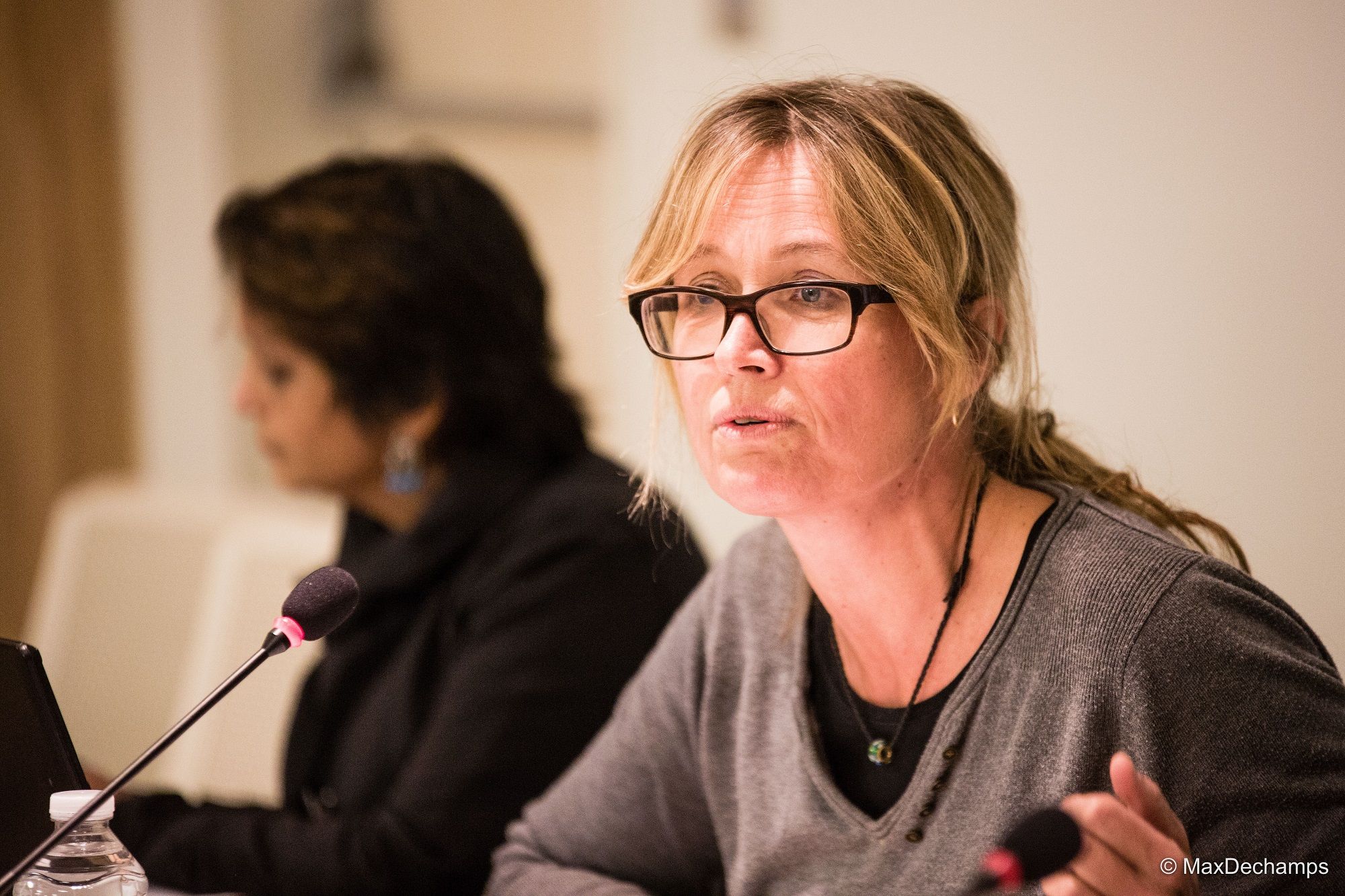Living wage = human right!

Ineke saw the dire need for cross-boarder action to improve working conditions, while at the same time confronting the systemic lack of institutional frameworks for cross-border negotiation. With fresh ideas and a role models of how the cross-border work of the global labour right movement can look like, CCC acted as a lighthouse and innovation incubator, e.g. in the subject of living wages. In 1998 the CCC drew global attention the problem of living wages by bringing seven major brands, including Nike and H&M, in front of a jury of the Permanent People’s Tribunal in Brussels. CCC worked closely with Asian partners to find new solutions in addressing poverty wages, and in 2007, the Asia Floor Wage Alliance (AFWA) was founded with strong support from CCC, and Ineke helped organize the first meeting that took place in Bangladesh AFWA is an Asian labour-led global labour and social alliance across garment producing countries (such as India, Indonesia, Sri Lanka, Cambodia, Bangladesh) and consumer regions (USA and Europe) for addressing poverty level wages, gender discrimination, and freedom of association in global garment production networks.
The call for a living wage was not new, but brands referred for years to the legal minimum wages. The fashion industry took advantage of the fact, that governments try to attract investors and buyers by squeezing minimum wages and erode labour rights – all to the detriment of workers. That’s why legal minimum wages became a far cry from what they were supposed to be: a guarantee to have enough income for a decent live. AFWA presented for the first time a cross-border living wage formula and a cross-border living wage demand- a great achievement that was made possible, also thanks to Inekes persistent and dedicated work.
At the same time, CCC increased its wage-focused international campaigns, it presented reports with concrete wage figures, pressured brands for higher payments and worked towards the active recognition of living wage as a central and enabling human right. Parallel to large living wage campaigns, CCC organised high-level lobby-events such as the “Living Wage Now Forum” in Brussels in 2015 (more: report “living wage now-forum”, video of the event). CCC also developed the concept of “enforceable brand agreements” (see article in living wage now magazine p. 41, written by Ineke Zeldenrust and Christa Luginbühl from Public Eye), and lobbied at multiple opportunities for binding rules, e.g. during the ILO International Labour Conference 2016 on “Decent work in global supply chains” (CCC statement at ILC). In 2018 CCC also developed a living wage benchmark for Central-, East- and South-East Europe as the minimum wages in that region. Thanks to the vast network of Ineke and her insight-knowledge of the garment industry, she successfully manages to engage with high-level policy makers and anchors core demands of CCC among politicians, fashion CEOs, multistakeholder initiatives and the media. Public Eye works since 2009 specifically on the subject of living wage and cooperates closely with the CCC for that.
A living wage is not yet a reality for workers, but the core principle of a living wage as a basic human right is not disputed anymore. This is both: an achievement, but also an obligation to push for its implementation.

